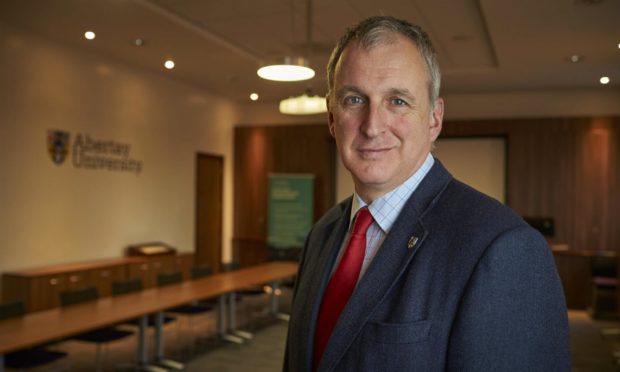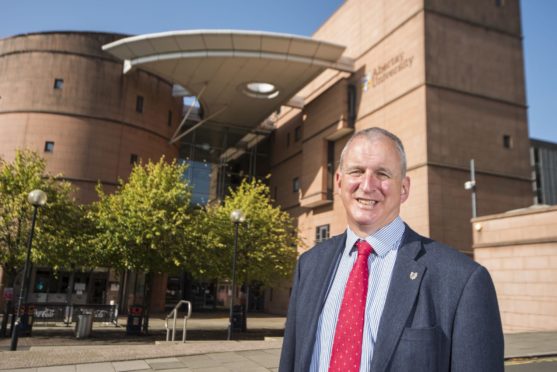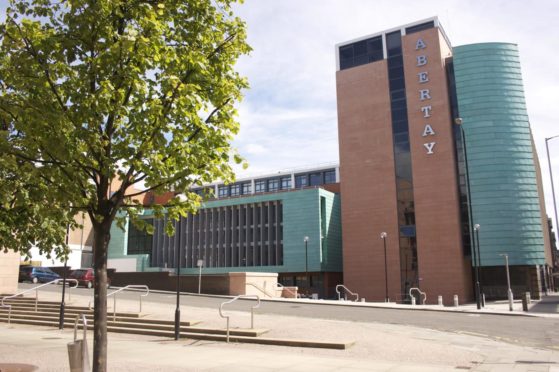The principal of Abertay University has issued a statement defending the institution’s stance on freedom of speech following a row over “offensive” comments made by a student who said “women have vaginas”.
Disciplinary action is being taken against Lisa Keogh, 29, over “offensive” and “discriminatory” comments she made during lectures at the Dundee-based university.
The university being is accused of preventing free speech, prompting Abertay principal and vice chancellor, Nigel Seaton, to step in to make the university’s position “absolutely clear.”
It comes after an investigation into comments made by Ms Keogh, a final-year law student.
She claims she was reported by classmates after she said women were born with female genitals and that “the difference in physical strength of men versus women is a fact”.
Ms Keogh said she was “utilising her right to free speech”.
The university’s misconduct policy includes “using offensive language” or “discriminating against gender reassignment” – with expulsion the highest penalty.
Professor Seaton said the university would not comment on a disciplinary investigation but did not in any way “stifle” controversial or challenging debate.
Students free to express ‘lawful’ views
In a statement Mr Seaton said: “While we are unable to comment on individual disciplinary cases, it has now become necessary to make the university’s general approach and procedures absolutely clear.
“For the avoidance of doubt, the university does not and will not constrain lawful freedom of speech within the university community.
“Our Code of Student Discipline is in place to address instances of student misconduct.
“It does not seek to define the range of acceptable opinions.
“Put simply, students are free to express any lawful views they wish to, as long as this is not done in an intolerant or abusive way.”
Professor Seaton added that Scottish universities are “required by law” to investigate all complaints, whether made by students, staff or members of the public.
“In some instances, complaints are complex and include different elements that must be assessed,” he added.
“This does not mean all elements of a complaint would necessarily be brought forward as part of any disciplinary process that might or might not follow.
“All universities should be places where freedom of speech is of paramount importance and we reject any notion that controversial or challenging debate is in any way stifled at Abertay.”
Ms Keogh said she fears expulsion following the investigation.
“I thought there was no way that the university would pursue me for utilising my legal right to freedom of speech,” she said.
“I didn’t deny saying these things and told the university exactly why I did so.
“You have got to be able to freely exchange differing opinions otherwise it’s not a debate.”



